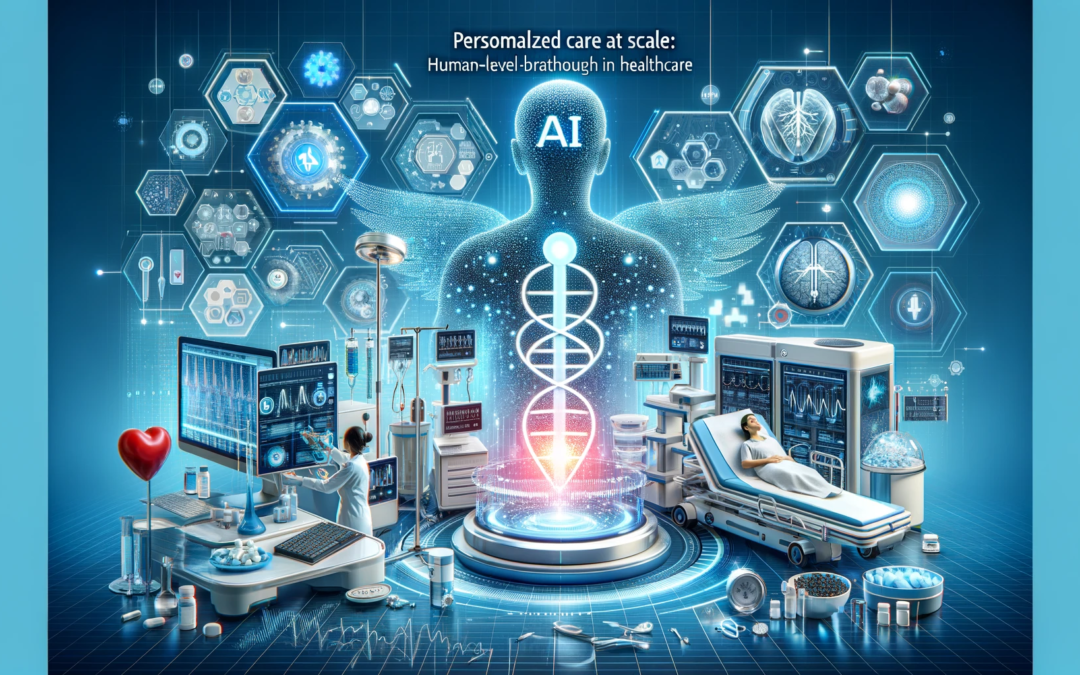Providing personalized healthcare has always been a challenge. Each patient is unique, with different medical histories, genetic makeup, and lifestyle factors. However, with the advent of AI, we are witnessing a transformative tool that is revolutionizing personalized medicine and healthcare.
AI in Diagnosis and Treatment Planning
AI is enhancing diagnostic accuracy and treatment planning by analyzing vast amounts of patient data and medical literature. With AI-driven diagnostic tools and platforms, doctors can make more informed decisions, leading to better patient outcomes. For example, AI algorithms can interpret medical imaging with incredible precision, assisting radiologists in detecting subtle abnormalities.
AI in Genetic Research and Drug Development
Genomics research and drug development have also been greatly accelerated by AI. With the ability to analyze vast amounts of genetic data, AI algorithms are contributing to breakthroughs in understanding diseases at a molecular level. This knowledge is then used to develop targeted therapies and personalized treatment plans.
AI-Driven Predictive Healthcare
Predictive healthcare is an exciting area where AI is making significant strides. By analyzing patient data, AI algorithms can identify patterns and risk factors, enabling early intervention and prevention strategies. This has the potential to revolutionize chronic disease management and improve overall population health.
Ethical and Privacy Considerations
While the benefits of AI in healthcare are undeniable, it is crucial to address the ethical implications and privacy concerns. The handling of sensitive health data and the use of AI in making clinical decisions raise important questions. The healthcare industry is actively working on developing guidelines and regulations to ensure the responsible use of AI in patient care.
Impact on Healthcare Accessibility
One of the most significant impacts of AI in healthcare is its potential to make healthcare more accessible and equitable. In remote or underserved regions, AI-powered telemedicine and digital health platforms can bridge the gap and provide quality care to those who need it most. This democratization of healthcare is a game-changer.
The Future of AI in Personalized Medicine
As we look ahead, the future of AI in personalized medicine holds immense promise. Advancements in AI technology, coupled with the availability of vast amounts of healthcare data, will further revolutionize patient care and medical research. However, we must also consider the long-term implications and ensure that AI remains a tool that enhances human expertise rather than replacing it.
Engaging with the Audience
We would love to hear your thoughts and experiences with AI-driven healthcare tools or services. Have you encountered AI in your medical journey? What do you think are the potential benefits and challenges of AI in personalized medicine? Join the discussion and share your insights!
Conclusion
AI is transforming healthcare into a more personalized, efficient, and research-driven field. By leveraging AI in diagnosis, treatment planning, genetic research, and predictive healthcare, we can provide better care to patients and advance medical knowledge. However, it is essential to navigate the ethical considerations and prioritize patient-centric approaches. With the right balance, AI has the power to revolutionize healthcare and improve the lives of millions.
AI-assisted diagnosis
AI in genetic research
AI in telemedicine










